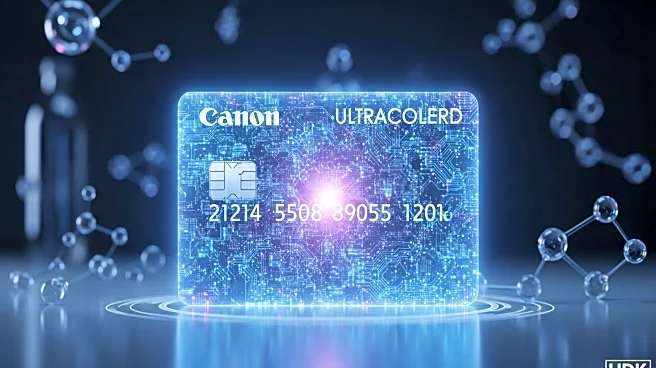What is the story about?
What's Happening?
Researchers at the Kastler Brossel Laboratory in France have developed a rudimentary quantum debit card capable of storing unforgeable quantum money. This innovation leverages the no-cloning theorem, a fundamental principle in quantum physics that prevents the creation of identical copies of quantum information. The team used extremely cold caesium atoms and particles of light to create a memory device that can store quantum states. This setup allows users to deposit quantum money into the memory, akin to loading a debit card. The experiment marks a significant step in quantum cryptography, although the storage time remains limited to a few millionths of a second.
Why It's Important?
The development of quantum money represents a breakthrough in secure transactions, offering a level of security that traditional currency cannot match. The inability to forge quantum money could revolutionize financial systems, reducing fraud and enhancing trust in digital transactions. This technology also has potential applications in secure communication and networking, as quantum states can facilitate ultra-secure data transfer. However, practical implementation requires overcoming challenges such as extending storage time and improving portability. Success in these areas could lead to widespread adoption in metropolitan quantum networks and beyond.
What's Next?
The research team aims to increase the storage time of quantum memory, which would make the protocol more practical for real-world applications. Achieving longer storage times could enable integration into existing quantum networks, enhancing secure communication capabilities. Additionally, advancements in quantum memory technology could pave the way for connecting multiple quantum computers, creating more powerful computing systems. The long-term goal is to develop portable quantum memory devices, potentially transforming how currency and data are handled globally.















